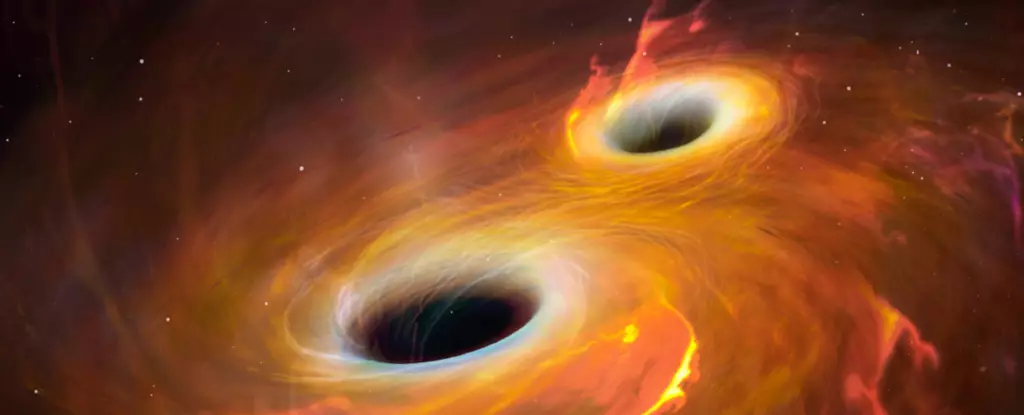As the world searches for ways to generate more energy from less material without further damaging the environment, innovative ideas are starting to emerge. From advancements in nuclear fusion to the increasing efficiency of solar panels, the focus is now shifting towards the storage and distribution of this energy across the grid. While battery technology is progressing rapidly, the quest for the ultimate energy storage solution has led theoretical scientists to explore new and unconventional methods, such as harnessing the power of microscopic black holes.
Recently, two physicists have delved into the theoretical limits of battery energy density by drawing inspiration from Einstein’s general theory of relativity. By envisioning perfectly round masses that do not rotate, they have hypothesized the formation of microscopic black holes within a compact space filled with energy. These charged black holes, each the size of a Planck mass, could be arranged into cells with electromagnetic repulsion that counteracts gravity, creating a stable and efficient energy storage system.
In theory, these oppositely charged micro black holes could merge into a single entity, rapidly releasing pure energy that was concentrated just outside the black hole. While the concept of ‘micro black hole batteries’ may seem far-fetched, it highlights the shortcomings of current battery technology and the potential for a revolution in energy storage. The efficiency of today’s lithium batteries, which store 954,000 joules per kilogram, pales in comparison to the energy density of a micro black hole battery, which could provide 470 million times more energy.
Although the idea of micro black hole batteries presents an intriguing possibility for the future of energy storage, there are numerous challenges and uncertainties that need to be addressed. The existence and creation of tiny non-rotating black holes remain theoretical, requiring advanced technologies and massive particle accelerators on a scale comparable to the Solar System. The transition from current battery technologies to the realm of micro black hole batteries would be a significant leap in energy storage capabilities, akin to the evolution of computer technology.
While the concept of harnessing the power of micro black holes for energy storage may seem like science fiction, it serves as a provocative reminder of the limitless possibilities for innovation in the field of energy technology. As researchers continue to push the boundaries of what is considered possible, the quest for efficient, sustainable, and high-capacity energy storage solutions will drive the future of clean energy production and distribution. The road to achieving such technological advancements may be long and uncertain, but the potential rewards in terms of energy efficiency and environmental sustainability are immense.


Leave a Reply